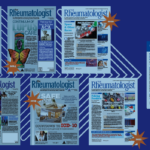Advocacy Ties Us Together
So far, engaging in advocacy has been a satisfying journey over the past eight years, and a large reason for that is the social element. Advocates, by their nature, are passionate about that systems-based thinking and making a positive difference in the world around them. Advocates eschew the negativity and cynicism of the nothing-ever-changes mindset and, instead, embrace a belief that they have agency in transforming the world.
Every September (barring the height of the pandemic years), it’s been a joy to go to Washington, D.C., talk with my fellow advocates and learn from their examples of how they are changing the world around them. It’s particularly enjoyable listening to them put the pieces of their world together in ways I wouldn’t have thought about. And, perhaps, a little like a support group, it’s a source of consolation that other people continue to commit to engaging with governmental bodies even when things don’t necessarily go their way.
I can’t speak on behalf of anyone apart from myself, but this group of advocates has been incredibly diverse, equitable, open-minded and welcoming. Some advocates appear to be political junkies, while others are more focused on their own pet interests. Some are very conservative in their outlook, whereas others are liberal. And some are researchers heavily ensconced in the world of academia, while others are in private practice settings. Many are patients and family members of those with arthritis and other rheumatologic conditions. Yet, as far as I have seen, all respect each other for what they bring together, and there is this incredible sense of unity and urgency toward fixing problems that are leading to unnecessary suffering.
Advocacy Is a Mindset
Advocacy can also be considered a mindset toward greater agency. One of the surprising takeaways from advocacy events when talking with legislators and legislative staff is how much it resembles a clinic visit. It has the same basic structure—a brief introduction, a complaint or concern, a decision-making process and a commitment to a plan. For the vast majority of advocacy visits, the communication style is remarkably similar. Speaking clearly and confidently while minimizing jargon is the hallmark of a successful encounter, whether in the clinic or on the Hill. Relaying stories of how governmental actions, or inactions, have led to improvement or harm is the key element of advocacy, in the same way that we counsel patients on the basis of our experience and evidence. That’s a powerful thing that rheumatologists, hand in hand with patients, have a great capacity to do.


